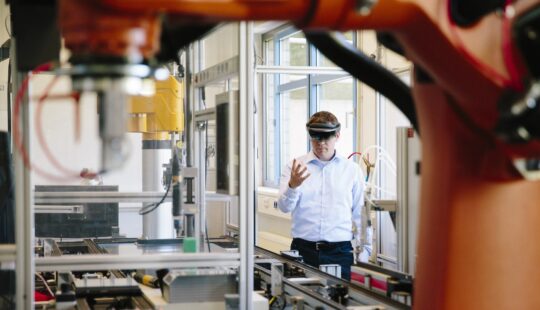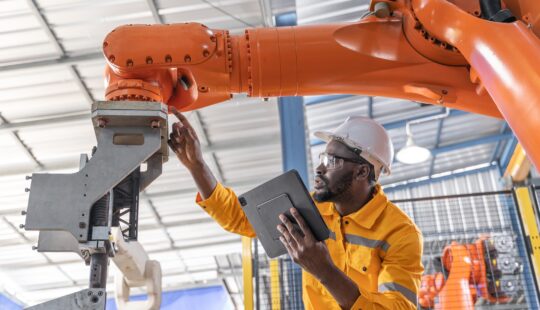What’s News
A shortage of some brands of baby formula in the U.S. has alarmed parents and forced some to drive hundreds of miles looking for supplies or spend hours searching online. It doesn’t have to be that way.
SAP’s Take
When a manufacturing plant goes down, companies equipped with new technology, such machine learning and predictive planning, can avoid crises by quickly divert operations to other facilities ahead of catastrophes, according to Mike Lackey, SAP global vice president of Digital Solution Management for Digital Manufacturing.
“We’re all in a world of disruptions,” Lackey said. “How you respond to it is going to be determine who people want to partner with in the future. I think this is a prime example of why Industry 4.0 and smart factory initiatives are so prevalent right now.”
Industry 4.0 involves automating systems and data exchange technology — such as machine learning and sensor detection — within manufacturing industries. This technology can transform manufacturing into a flexible, intelligent operation that can predict, fix and quickly pivot to spot and address problems before they happen.
COVID-19 supply chain disruptions already had been pressuring baby formula manufacturing before the possibility of contamination of cronobacter, a bateria, was detected at Abbot Laboratories’ Sturgis, Michigan, plant where Similac, Alimentum and EleCare brands are made. That forced a recall and the plant shut down in February. By the end of April, 40% of the most popular brand-name formulas were out of stock nationwide. The Sturgis plant is Abbot’s only facility producing Alimentum and EleCare, formulas for babies with sensitive digestive systems. Abbot is the largest maker of baby formula.
Although U.S. Food and Drug Administration on Monday gave Abbott to resume production, the manufacturer said it would take eight weeks before parents found the products on store shelves.
But it didn’t have to be this way, Lackey said. “What’s happening in manufacturing has to be connected to planning. I don’t mean just your demand planning.”
By now, there is no shortage of risk scenarios that can happen and that already have happened. Disease, war, falling bridges, fire, floods and other biblical-sounding plagues have underscored the need for technology that can help companies continue operating under any scenario a person can think of and input. With machine learning and the joining of business and operational data, enterprises can adjust materials, production, suppliers and deliveries for every scenario.
And like many car manufacturers, machine learning can help detect facility problems before they become critical and lead to shutdowns.
“With planning, you could say, ‘We had a bacterial contamination. It’s under control. We’re going to have to shut down this production. But we will have formulas on the shelves in 48 hours because we’ll have moved it to another plant.’”
Those that can be nimble, that can automate processes and respond to disruptions, move production from one plant to the next based on market conditions and shift suppliers to adjust to any calamity will be the businesses that thrive, Lackey said.
Such crises also open the door to competitors, Lackey noted Monday. By Tuesday, Switzerland-based Nestle, No. 3 formula producer, said it would fly in formula to help restock U.S. shelves.
“Those are the companies that are going to be the leaders in the future, not the ones that continued to do business the way they have,” he said. “It’s going to be a wake-up call for a lot of companies. When we talk about industry-forward, it’s about resilience — planning resilience, supply chain resilience and manufacturing resilience — and the ability to move production from one plant to the next based on market conditions.”
Contact:
Ilaina Jonas, Senior Director of Global Media Relations, SAP
+1 (646) 923-2834, ilaina.jonas@sap.com
SAP Press Room



